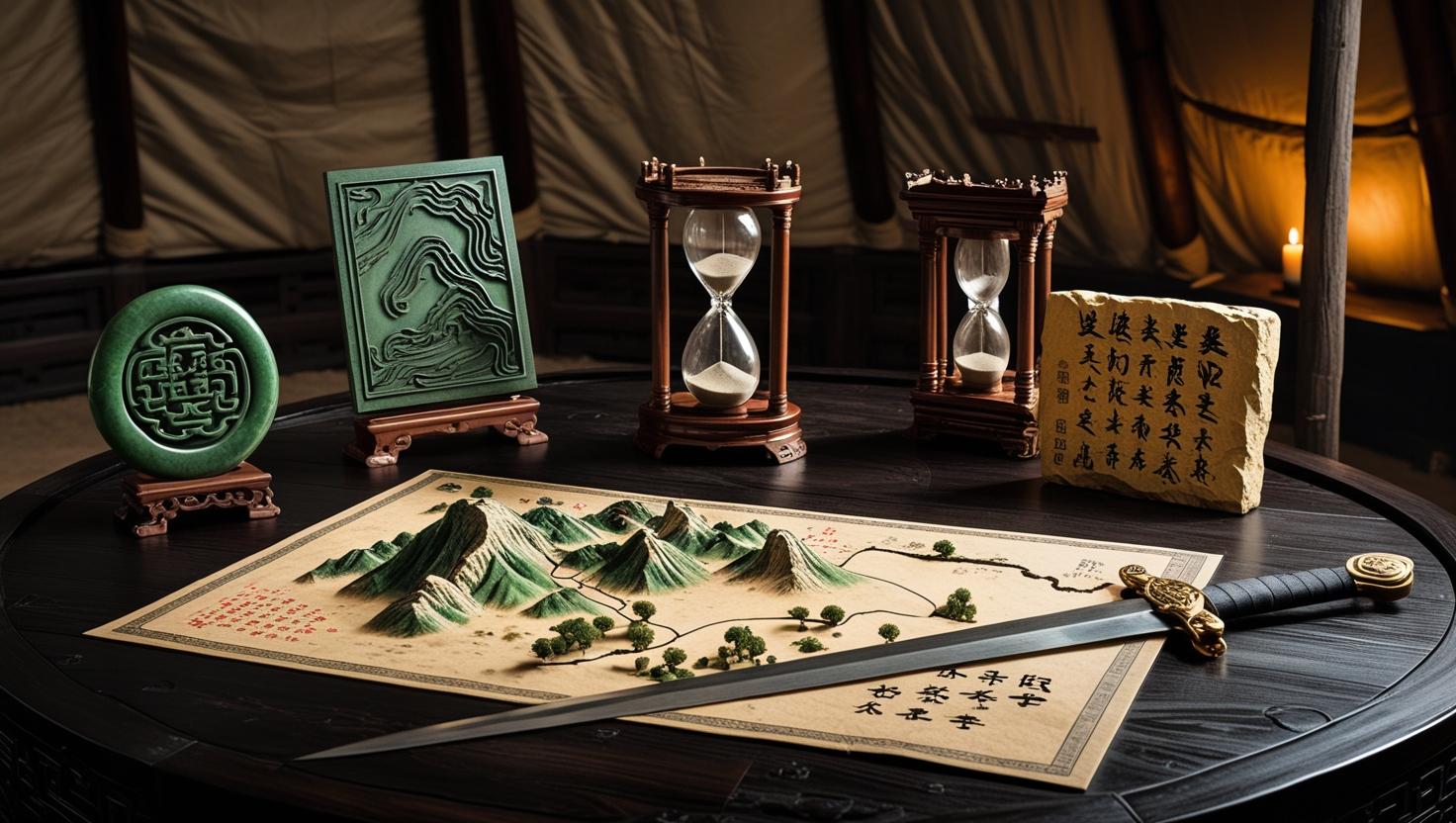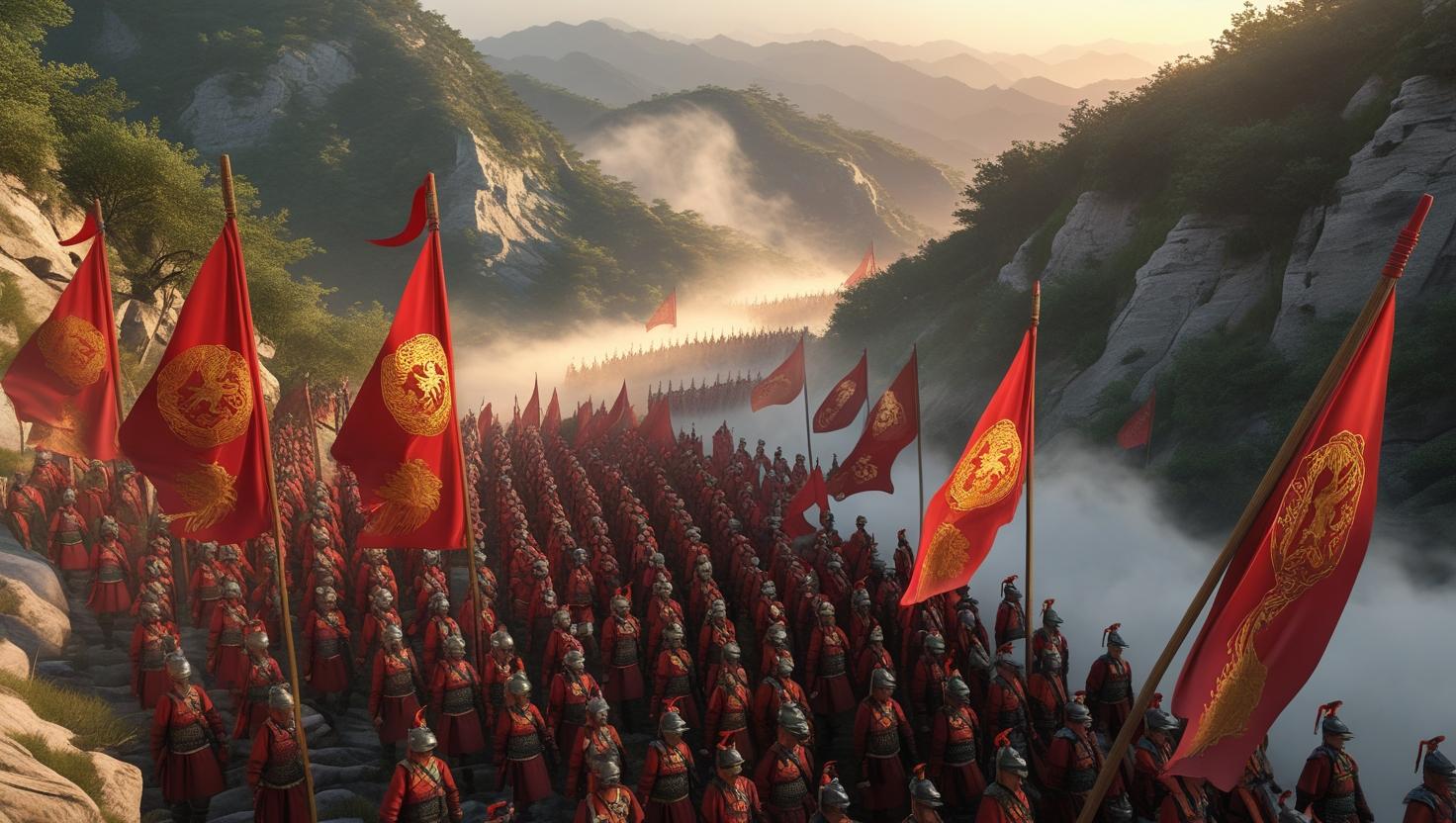The Art of War by Sun Tzu: Chapter 1: Laying Plans
2025-06-25

Chapter 1: Laying Plans
The first chapter of The Art of War is titled "Laying Plans." It focuses on assessing and calculating the relative strengths and weaknesses of both sides before initiating war. If victory cannot be foreseen, then one must not recklessly launch a military campaign. This is the core of Sun Tzu’s philosophy: win first, then fight.
"War is a matter of vital importance to the state. It determines life and death, safety or ruin. It must be examined and understood with the utmost seriousness."
— Sun Tzu
Before going to war, it is essential to thoroughly assess the situation.
Five Key Factors
There are five key factors that must be evaluated:
- Politics – Ensuring the people support their ruler and are willing to fight for him.
- Timing – Natural conditions like day and night, weather, seasonal changes, and other elements that influence operations.
- Terrain – The distance to travel, whether the terrain is treacherous or easy, wide or narrow, and whether it favors defense or attack.
- Leadership – Whether commanders are wise, decisive, fair, brave, compassionate, and respected by their troops.
- Discipline – Includes army organization, clear officer responsibilities, leadership systems, and logistics management.
By comparing both sides across these five dimensions: leadership, command strength, timing and terrain advantage, organization, and training, allows one to judge which side has the upper hand.

Creating Momentum
In addition to strategy, building momentum is crucial. This means using favorable conditions to increase pressure and form a powerful posture for success. Momentum allows flexibility and adaptation to circumstances.
The Deceptive Nature of War
War is fundamentally a game of deception. When you are strong, appear weak. When you intend to strike, pretend disinterest. When your target is near, make it seem far. If you’re planning a distant assault, disguise it as a nearby threat.
- If the enemy shows greed, tempt him with minor gains; then strike.
- If the enemy falls into disarray, take immediate action.
- If the enemy is formidable, stay cautious and avoid direct conflict.
- If the enemy is fierce and aggressive, do not engage head-on.
- If the enemy has a hot temper, provoke him to disrupt his judgment.
- If the enemy underestimates you, encourage his arrogance.
- If the enemy is rested, find ways to wear him down.
- If the enemy is united, sow discord from within.
Seizing the Unexpected
The key to success is to strike the enemy when he is unprepared and to act at times he does not anticipate. Commanding in war hinges on flexibility; adapting swiftly to changing conditions rather than clinging to fixed strategies.
Victory before battle means that all necessary factors have been carefully planned and favorable conditions established. Likewise, if defeat is foreseeable before conflict begins, it stems from poor preparation and lacking foundations.
Careful planning and strong foundations secure victory.
Poor planning and fragile conditions ensure defeat.
Without either, success becomes impossible.
The Weight of Responsibility
Sun Tzu begins The Art of War by emphasizing the supreme importance of strategy in warfare. He insists that one must approach war with the utmost responsibility, both for the state and for its people. Strategic insight and a wide, measured perspective must precede any armed engagement.
Success demands a comprehensive analysis of both sides' circumstances to create effective response strategies and tactical plans.
Both Sun Tzu and Confucius place the highest value on reverence and caution in serious affairs. The Confucian principle known as the Doctrine of the Mean stresses vigilance:
Be wary even in apparent peace, listen in silence, stay alert in stillness.
Be constantly introspective and mindful of the unseen and unknown.
Likewise, Sun Tzu places life-and-death decisions at the very heart of military thought, and he opens his text with this tone of grave responsibility.
Strategic Assessment and Comparative Analysis
A thorough evaluation of the situation is crucial before launching into warfare, much like how modern businesses conduct a SWOT analysis: strengths, weaknesses, opportunities, and threats.
Sun Tzu’s equivalent of this framework consists of five critical factors:
- Politics
- Timing
- Terrain
- Leadership
- Military discipline
Lessons from History
History vividly demonstrates the impact of these factors:
- Timing: Napoleon’s undefeated army was ultimately brought down by the bitter winter of Moscow.
- Terrain: Qin prevailed over the six-state coalition by leveraging the natural fortification of Hangu Pass.
- Discipline: Cao Cao maintained discipline by enforcing punishment. When he violated his own rule, he cut off part of his hair instead of his head to uphold the principle. This act inspired respect and unity and contributed to his triumph at the Battle of Guandu.
These examples illustrate that success or failure in warfare is deeply shaped by mastery of Sun Tzu’s five factors.

Strategy and the Environment
Even the most well-conceived strategy cannot succeed without favorable conditions. Once the five elements are carefully analyzed and victory appears attainable, only then should a commander act. Strategy must be flexible and adaptable to the environment; otherwise, it becomes futile.
A skilled commander creates the right conditions to enable strategic success. Similarly, in business, creating favorable momentum is essential. One prominent method is through creative advertising campaigns, a tool used to mold public perception and stimulate demand.
The Power of Perception: A Business Example
Take the case of the United Carbon Building in Washington D.C.:
- The company sealed windows to trap pigeons inside the skyscraper.
- They then alerted the Animal Protection Committee, framing it as a pressing issue.
- Media coverage exploded, focusing on the quirky “pigeon-catching incident.”
- Over three days, the story dominated headlines.
- Executives appeared on TV to speak on animal welfare, and cleverly linked their ethos to their business.
The outcome? The firm’s reputation skyrocketed. This example mirrors military strategy: crafting circumstances to direct attention, generate force, and achieve a goal.
War as Deception
Once the battle begins, war becomes the art of deception. At this stage, strategy and cunning come to the forefront: “Use various means to confuse and mislead the enemy.” The purpose is to prompt the opponent into making critical misjudgments. This is where the concept of the Twelve Deceptions comes into play:
The Twelve Deceptions
- Feign capability while appearing incapable.
- Feign inactivity while fully prepared.
- Appear distant when near, and near when far.
- Lure with the promise of gain.
- Strike when the enemy is in chaos.
- Defend when the enemy is solid.
- Avoid direct conflict when the enemy is strong.
- Provoke them when they are angry.
- Show humility to arouse arrogance.
- Wear them down when they are at ease.
- Sow division when they are united.
- Attack when they are unprepared; strike when least expected.
- The first four tactics are focused on concealment.
- The last eight are about exploiting the enemy's weaknesses.
Mastery Through Surprise
Throughout history, success in warfare often came from unexpected, rapid strikes against unguarded opponents. These ambushes caused errors in strategy, disrupted planning, and led to sudden collapse. The maxim:
“Attack when the enemy is unprepared; strike when they least expect it”
…embodies the core of Sun Tzu’s strategic thinking. It reflects the highest form of military mastery: seizing initiative by creating surprise.
The Airbnb Example: Business as Warfare
A modern echo of this tactic is the rise of Airbnb.
- In 2008, Airbnb introduced an unusual model: renting out air mattresses in homes, while traditional hotel chains focused on expanding luxury properties and infrastructure.
- During the global financial crisis, Airbnb tapped into economic desperation: hosts needed income; travelers sought cheaper lodging.
- Airbnb took root in an uncharted territory, namely peer-to-peer home sharing, where hotels had little to no presence.
- By the time traditional hotels noticed, Airbnb had already scaled globally.
- Encumbered by regulations, high overhead, and slow innovation, hotels couldn’t keep up.
Airbnb’s rise was a textbook case of striking where the opponent was vulnerable. Like a general exploiting a soft flank, they succeeded by attacking in an unexpected space with speed, creativity, and agility.

The Strategic Core: Five Factors, Seven Evaluations, Twelve Deceptions
The heart of the Planning Chapter can be distilled into three key strategic layers:
1. Five Factors: The Foundations of Strength
These are the elemental components that shape your strategic foundation:
- Politics – Moral influence and popular support.
- Timing – Alignment with favorable natural or situational conditions.
- Terrain – Physical geography and positional advantage.
- Leadership – Competence, courage, clarity, and fairness.
- Military Discipline – Organization, law enforcement, and logistical efficiency.
2. Seven Evaluations: The Metrics of Comparison
From the Five Factors, we derive seven criteria to assess and compare both sides before engaging in war:
- Which ruler commands deeper moral influence?
- Which commander exhibits superior capability?
- Who holds the advantage in timing and terrain?
- Whose legal systems are more efficient and just?
- Which army possesses greater strength?
- Whose troops are better trained and disciplined?
- Whose system of reward and punishment is clearer and fairer?
This evaluation is the essence of military science: to measure before one arrow flies. If the conclusion points to victory, proceed. If not, don’t fight yet. Use that time to prepare, refine, and strengthen. Incrementally raising your standing across every domain until the edge is yours.
3. Twelve Deceptions: The Tools of Tactical Advantage
Though tactics and trickery can be deployed once the core strategy is sound, they’re not the foundation; they’re the embellishment. Strategy comes first. Tricks alone are meaningless without substance.
From Battlefield to Boardroom
This philosophy echoes loudly in business. Before anything else, a product or service must be built with integrity and dedication. Clever marketing and positioning (the Twelve Deceptions) may capture attention, but without a solid foundation, they won’t sustain success.
The true art lies in mastering the Five Factors and Seven Evaluations, a pursuit that demands character, insight, effort, patience, and time. That’s where the long game is won, and that’s where real mastery lives.